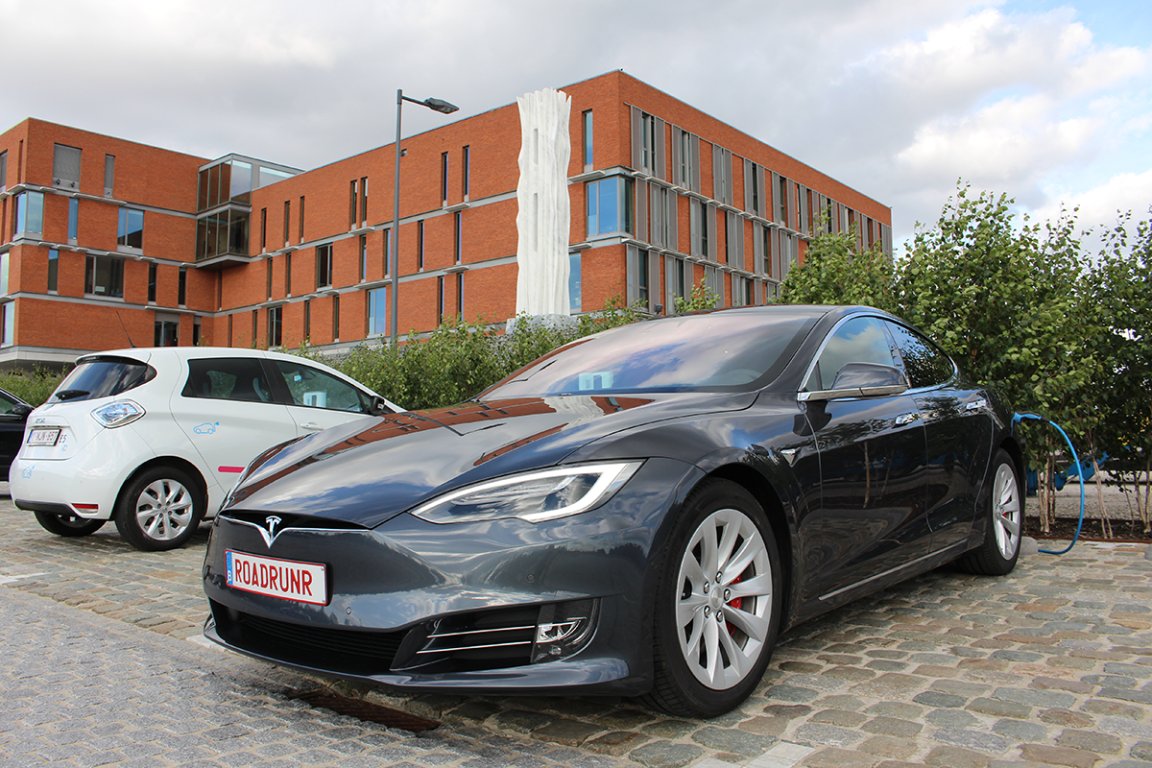
The Model S Record
A Tesla Model S P100D has just been used to set a new record for distance driven on a single charge: 901.2 km (~560 miles). Steven Peeters and Joeri Cools managed to break the record for the lowest energy consumption for the vehicle as well, achieving 88 Wh/km (54.7 Wh/mile).
They did so by hypermiling (driving the vehicle with the specific goal of increasing efficiency). For example, because cars are not as efficient at high speeds, the drivers averaged only 40 km/h (24 mph) — a speed that wouldn’t be ideal for actual travel, but that’s great for breaking records.
Most previous approaches to hypermiling have focused on driving cars in a straight line, but Peeters and Cools opted for a different approach, following a 26 km (~16 mile) closed loop in Belgium in order to learn to optimize the car’s energy usage.
“By the time we finished the attempt, we knew perfectly how to take every turn and roundabout to make sure we drove with the least possible consumption,” Peeters explained in a blog post. They also learned how to drive under different temperature conditions as the attempt took them almost an entire day: 23 hours and 45 minutes.

In 2015, Elon Musk predicted that a Tesla with a 950 km+ (~600 mile) maximum range would be ready by 2017. This attempt was just shy of the prediction, but the drivers think they did the best they could under their circumstances and explained what would be necessary to break the 1,000 km (~621 miles) record: “That would have to be a perfect run in perfect circumstances, which I believe are not possible in our country.”
A Precedent for Electric Cars
Hypermiling is not the way the vast majority of people drive, but it is a good test to show just how efficient a car can be. We must also consider that this test was undertaken in the error-strewn landscape of human judgement. If the Model S’s Autopilot were adjusted to maximize efficiency, it could potentially learn more quickly than the drivers and make the appropriate adjustments.
The previous Tesla record holder, Casey Spencer, achieved an 885 km (550 mile) run last year, so this record-breaking run marks an impressive new milestone for the Model S’s efficiency.

While these scores are not particularly close to beating the records set by non-electric vehicles, we must remember that this is only the second Tesla car ever built (with the Model 3 coming soon), updates are arriving quickly, and a lower maximum milage is a happy sacrifice for a more environmentally friendly mode of transportation.
If Tesla’s cars continue progressing at this rate, it won’t be long before their environmentally unfriendly counterparts are matched in performance — the only category they’re really ahead in anymore. Electric cars are now closing in fast on their fossil fuel-powered counterparts, with other recent feats including a Nio EP9 achieving a staggering time of 6:45:9 around Germany’s Nürburgring track. Soon, they’ll be ready for full industry domination.